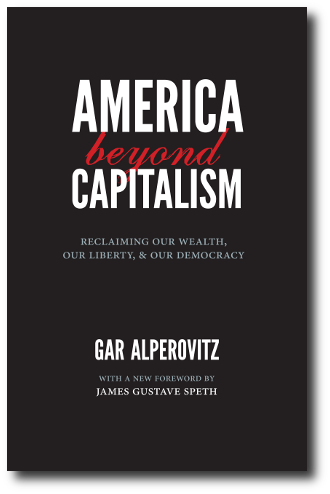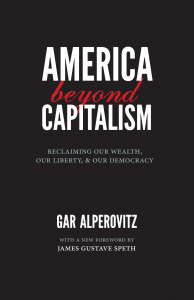 This new working paper by Gar Alperovitz, Gus Speth, Ted Howard, and Joe Guinan from The Next System Project—prepared as an invited contribution to the “After Fossil Fuels: The New Economy” conference in Oberlin, Ohio from October 6-8, 2016—explores the intersections of systemic economic and ecological crisis, and propose that only a break with the mechanisms of corporate capitalism is capable of guaranteeing a sustainable future.
This new working paper by Gar Alperovitz, Gus Speth, Ted Howard, and Joe Guinan from The Next System Project—prepared as an invited contribution to the “After Fossil Fuels: The New Economy” conference in Oberlin, Ohio from October 6-8, 2016—explores the intersections of systemic economic and ecological crisis, and propose that only a break with the mechanisms of corporate capitalism is capable of guaranteeing a sustainable future.
The challenge of mounting an adequate response to climate change has to be understood within the context of the larger systemic crisis facing the United States. The perpetuation of generalized austerity and the continued reliance on traditional— and manifestly insufficient—policy solutions which do not address the underlying drivers of inequality, poverty, and ecological overshoot is especially wrongheaded given the historically unprecedented productive capacity our nation enjoys, and the growing consensus on the fundamentals of post-scarcity monetary theory. As the ecological rift widens, we must recognize the incompatibility of core features of the current corporate capitalist system with a sustainable, just, and equitable future…
 AMERICA BEYOND CAPITALISM
AMERICA BEYOND CAPITALISM



 Agenda
Agenda  Posterboard
Posterboard 